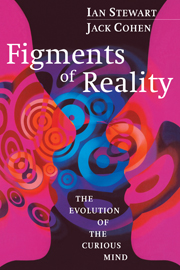Book contents
- Frontmatter
- Contents
- Preface
- Figure Acknowledgements
- Prologue
- 1 The Origins of Life
- 2 The Reductionist Nightmare
- 3 Ant Country
- 4 Winning Ways
- 5 Universals and Parochials
- 6 Neural Nests
- 7 Features Great and Small
- 8 What is it Like to be a Human?
- 9 We Wanted to Have a Chapter on Free Will, but We Decided not to, so Here It Is
- 10 Extelligence
- 11 Simplex, Complex, Multiplex
- Epilogue
- Notes
- Further Reading
- Index
4 - Winning Ways
Published online by Cambridge University Press: 11 August 2009
- Frontmatter
- Contents
- Preface
- Figure Acknowledgements
- Prologue
- 1 The Origins of Life
- 2 The Reductionist Nightmare
- 3 Ant Country
- 4 Winning Ways
- 5 Universals and Parochials
- 6 Neural Nests
- 7 Features Great and Small
- 8 What is it Like to be a Human?
- 9 We Wanted to Have a Chapter on Free Will, but We Decided not to, so Here It Is
- 10 Extelligence
- 11 Simplex, Complex, Multiplex
- Epilogue
- Notes
- Further Reading
- Index
Summary
A species of viperine snake, which is not poisonous, has evolved three ways to protect itself against predators. The first is camouflage, so that it gets ‘lost’ against its background. However, its camouflage is very similar to that of the poisonous adder, which leads to the second method: mimicry. If a predator sees through its camouflage, it exploits the resemblance to an adder by behaving like an adder. But if this doesn't work either, for example when the predator is a crow, which kills adders, it adopts the third strategy. It flips about like a demented rope, and then it arranges itself on the ground to look for all the world like a dead snake, lying on its back in the dust at an awkward angle, with a vaguely bloated look ….
However, if it is now turned on to its front, it promptly and energetically flings itself back into its ‘dead snake’ pose.
The background theory and philosophy is now out of the way, and we are ready to begin the journey from molecules to minds. It is a journey which, at every stage, involves the concept of evolution. Evolution is a general mechanism whereby systems can ‘spontaneously’ become more complex, more organised, more startling in their abilities.
- Type
- Chapter
- Information
- Figments of RealityThe Evolution of the Curious Mind, pp. 77 - 108Publisher: Cambridge University PressPrint publication year: 1997

